About the lab & main translational research directions
The lab of Julia Skokowa is developing gene- and protein-based therapeutics for hematological and oncological diseases. The main translational research directions are:
- Correction or inactivation of gene mutations causing severe congenital neutropenia using gene editing with CRISPR nucleases: We have developed several CRISPR/Cas gene editing approaches for gene therapy of patients with different forms of severe congenital neutropenia (Nasri et al., 2020, Skokowa et al., 2021). Having successfully finished pre-clinical studies, we plan to initiate clinical trials using these approaches.
- Using CRISPR nucleases to model diseases: We have established various state-of-the-art methods of experimental disease modeling using CRISPR nucleases by e.g., introducing or correcting gene mutations, activating or inhibiting genes of interest, tagging of endogenous proteins by fluorescent or luminescent markers. We apply the above techniques to primary cells, iPSCs, zebrafish embryos and cell lines (Dannenmann et al., 2020, Nasri et al., 2019, Mir et al., 2020, Morishima et al., 2019).
- De novo protein-based therapeutics: We are performing computational design of de novo protein-based therapeutics for hematological and oncological diseases (Hernandez Alvarez et al., 2020, Skokowa et al., 2022).
GRT projects
- CRISPR/Cas9-based gene therapy approaches for severe congenital neutropenia
- Identification and functional validation of causative variants in patients with genetically unclassified severe congenital neutropenia using NGS-based OMICS followed by disease modeling in iPSCs, primary hematopoietic stem cells and zebrafish
- Design and development of miniaturized CRISPR nucleases for therapeutic gene targeting
- Development of therapeutic proteins for hematology and oncology using de novo protein design
GRT expertise
- Preclinical development of gene therapies for hematological diseases using CRISPR nucleases
- Engineering of de novo protein-based therapeutics
- Phenotype-genotype correlation and identification new disease-causing gene mutations in patients with severe chronic neutropenias
- Mechanisms of hematopoietic differentiation and leukemogenic transformation of hematopoietic stem cells
- In vitro and in vivo modeling of hematological disorders and leukemia
GRT techniques
- State-of-the-art gene editing approaches for primary cells, iPSCs, zebrafish and cell lines
- RNP-, AAV-, and mRNA based delivery of CRISPR nucleases, or HDR templates
- Tagging of endogenous proteins using CRISPR nucleases
- Genome-wide off- and on-target analyses of CRISPR nucleases (rhAmpSeq CRISPR Analysis System, GUIDE-Seq (genome-wide profiling of off-target cleavage by CRISPR-Cas nucleases), CAST-Seq (Quantitative evaluation of chromosomal rearrangements in gene-edited human stem cells), Nano-OTS (Nanopore off-target sequencing))
- In vitro and in vivo modeling of hematological disorders and leukemia (primary hematopoietic cells, iPSCs, transgenic animals and fish, PDX-, humanized PDX mouse and fish models)
- In vivo engraftment of gene-edited hematopoietic stem and progenitor cells
- Bioinformatic analyses of NGS data for identification of disease-causing and leukemia-associated gene mutations
- De novo design and functional validation of protein-based therapeutics



